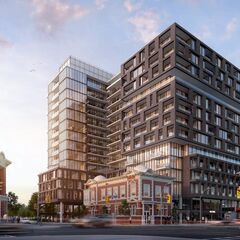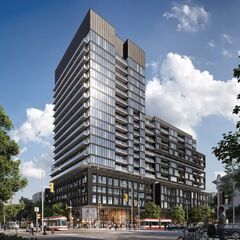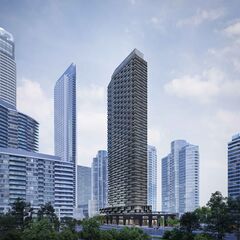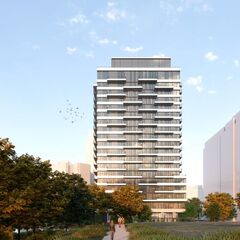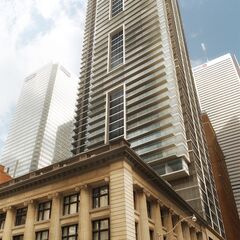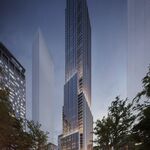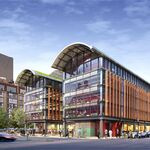Across the city, different sectors of the development and construction industries are busy working on several projects from Lifetime Developments. Following the recent topping off of XO Condos, UrbanToronto had a chance to sit down with one of the Principals at Lifetime, Brian Brown, to discuss how the company is navigating an industry in a particularly precarious stage, and what the role of the developer is in the process of productive city building.
UrbanToronto: Looking at the big players in Toronto’s development industry, Lifetime is one of the more active companies, often working on over ten projects at a time. How do you balance such a full plate of large scale developments?
Brian Brown: We do have quite a bit of work in our pipeline, but although we may have fifteen, sixteen projects on the go at one time, they are at different stages. Another big thing is, everybody in our office has been working on a very collaborative basis. We’ve ensured that our people are jumping between different groups which creates a lot of information sharing, so it’s a very collaborative office.
When you think about how much time we spend together as a team, there has to be a good balance between the work side and the social side of things. Creating a culture where people want to be in the office is something that has allowed us to grow, and manage the work that we’re doing and oversee multiple projects. The same thing goes for the people that are on the site, the consultants, the different trades, making sure our people that are working with the trades have built that relationship as well.
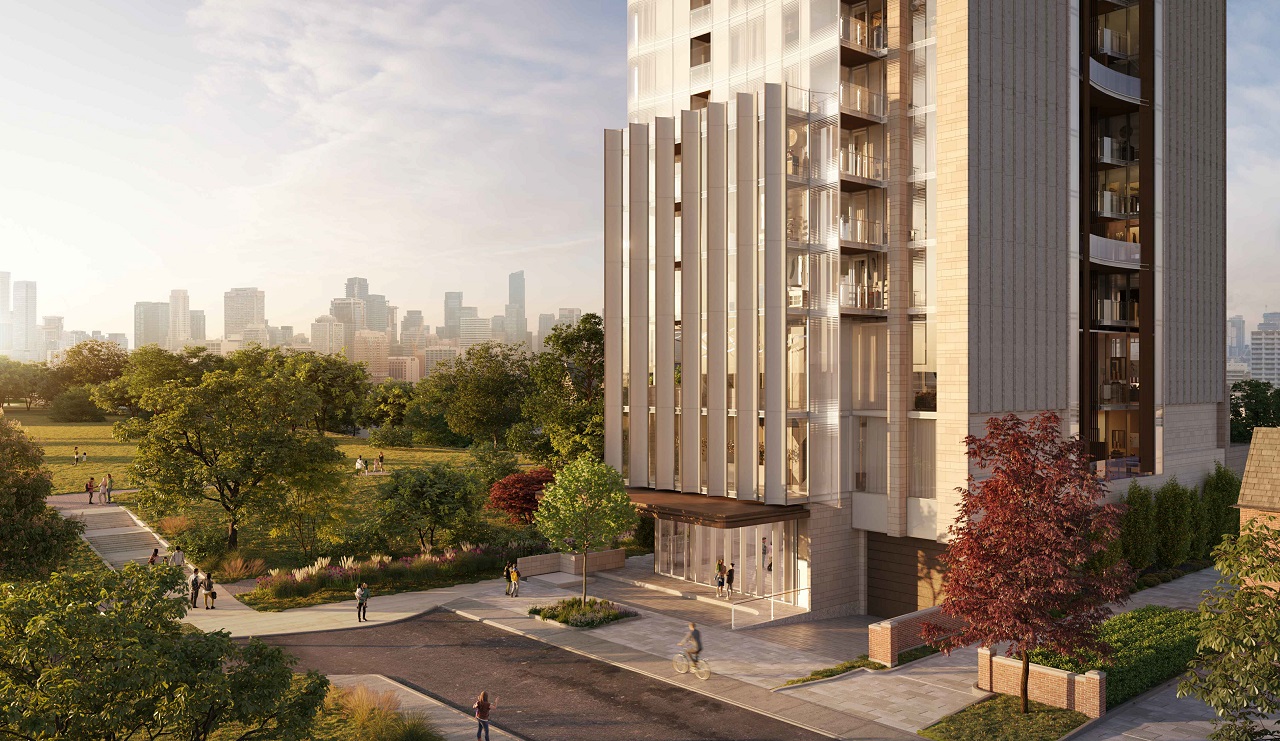 29-storey residential development designed by Hariri Pontarini in the Lifetime Pipeline, image courtesy of Lifetime Developments
29-storey residential development designed by Hariri Pontarini in the Lifetime Pipeline, image courtesy of Lifetime Developments
UT: Being a company that has the resources to work with an in-house construction unit, how does that change your approach to new projects?
BB: I think we’re much more sophisticated in our approach than we have been previously, and our partners are recognizing that too. We can take a much deeper look into our buildings and the way they are constructed to make sure that we’re creating buildings efficiently, and balancing great design with proper construction methodologies. What it has allowed us to do is look at a lot of these complex technical areas of construction and understand them so that as we are going through zoning, for example, we’re not proposing something that’s going to cause a big issue later on.
Just yesterday, one of our all-star site supervisors came into the office and said, ‘I know you have finished the suite design but I don’t want to just get the drawings and build it, I want to sit down with you and go through it.’ He is someone who looks at our drawings from a different perspective and it’s those perspectives that we need to understand and incorporate into our plans.
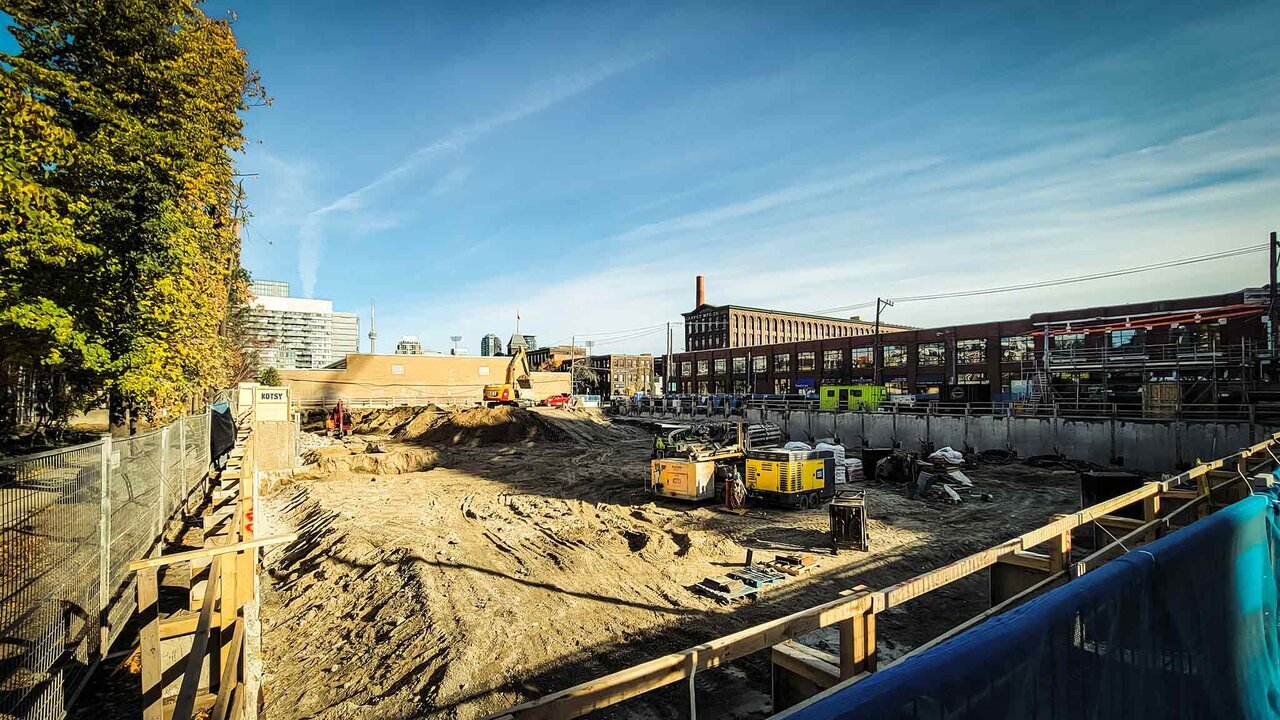 In-house construction crew working on the site of XO2, image by UT Forum contributor kotsy
In-house construction crew working on the site of XO2, image by UT Forum contributor kotsy
UT: In a city like Toronto, with a housing market that is buckling with current conditions, what do you see as the most effective way to deliver new housing?
BB: For us, it’s about getting our approvals and doing so as efficiently as possible. It used to be that you get a building zoned and you start sales and then you do your drawings once you know you have construction financing, and that could cause 6 to 12 months of delays. We want to start construction as soon as we get through sales and not have that delay, which means front-loading some of the costs, and for us that’s about getting a building to market as soon as possible. That’s where affordability is. The longer we wait, the more construction costs are going to go up, and if we want to put housing in the market we’ve got to do it quickly and efficiently.
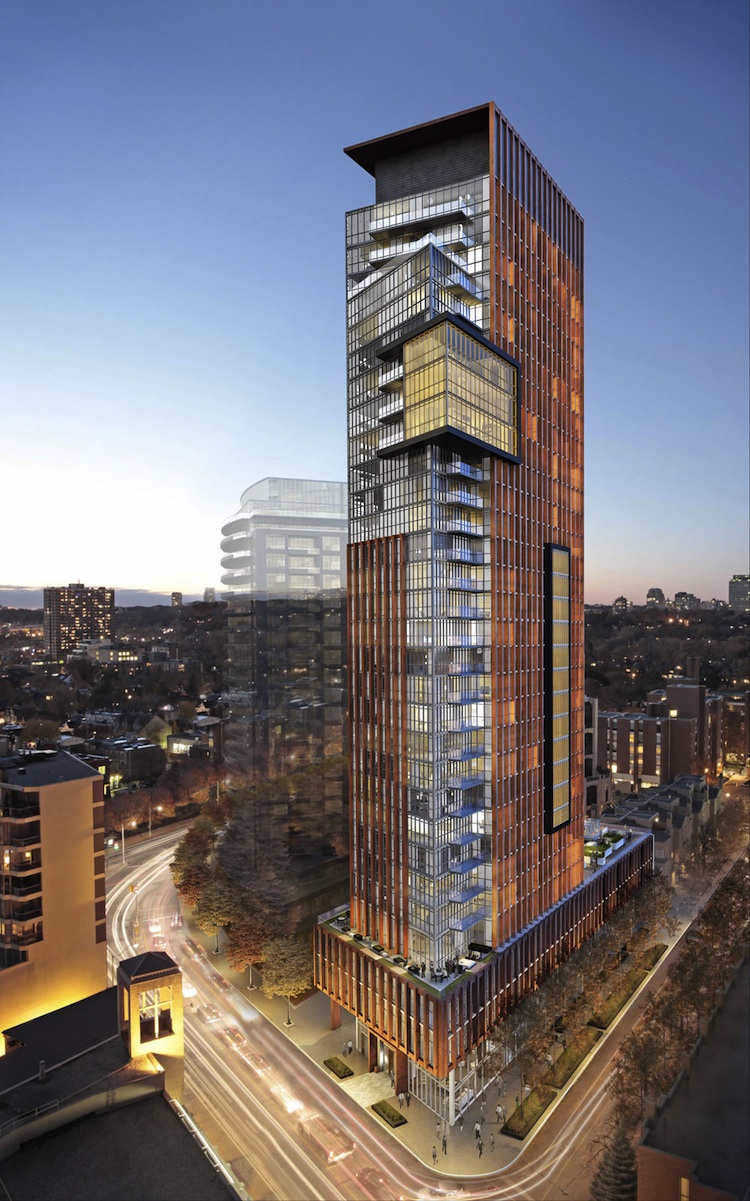 The Yorkville Condominiums delivered 234 new units to the Yorkville area, image courtesy of Lifetime Developments
The Yorkville Condominiums delivered 234 new units to the Yorkville area, image courtesy of Lifetime Developments
UT: Beyond simply delivering units, there are other factors that play into creating a healthy, complete community. How can developers be involved in bringing communities to life?
BB: The need to have balance is very important for city growth, there needs to be the opportunity for people to work close to where they live, it can’t be just residential or just offices. If you looked at the financial district years ago, it was a ghost town on the weekends. I remember as a kid going with my dad down to his office in the downtown core and it would literally be empty, there was no life in the financial core on the evenings or on the weekends. With a development like INDX Condos, we saw that bringing in a mix of residential within the offices changed the way people view the financial district, and it demonstrated how development can change the energy of an area and its attractiveness as a place to live and work.
 54-Storey INDX Condos injected over 700 units into the office-oriented Financial District, image courtesy of Lifetime Developments
54-Storey INDX Condos injected over 700 units into the office-oriented Financial District, image courtesy of Lifetime Developments
As the city grows there is that need to have that balance, because people don’t want to get in their cars and drive, they want to live in the city, and work in the city, and go to the restaurants in the city… and you can only achieve that when you’ve got a good balance.
In the case of XO Condos and XO2, for example, it was a challenge because we didn’t want to see the neighbourhood lose that retail. With the development, what we’ve done is replace the retail that was there, and design it in a different way where it has a better presence in the street and more opportunity to elevate the experience as you walk that intersection. So, from a city building standpoint, we’re bringing new retail and new people to an area that, in my opinion, really needed that injection of new development. And when you look at it from the standpoint of public transit, it was a major intersection that needed to have more life. Those kinds of improvements and the opportunities for our developments to give back to a bigger community around us, that's what's important, that's what’s great about development.
UT: If we know anything about Lifetime, it’s that you are always planning what’s next. Can you give us any teasers or previews on some exciting upcoming projects?
BB: We recently finalized our approval for 200 Queens Quay, and its location is amazing. I’m really excited about that development. We are working on a collaboration with a luxury brand for that project and I think it’s something that’s going to be very unique and exciting for the city. Given its location immediately south of the CN Tower, it's going to change the skyline of the city, and you really don’t get those opportunities on a regular basis so we’re very excited about it, and we hope to bring it to market next year.
* * *
UrbanToronto has a research service, UrbanToronto Pro, that provides comprehensive data on construction projects in the Greater Toronto Area—from proposal through to completion. We also offer Instant Reports, downloadable snapshots based on location, and a daily subscription newsletter, New Development Insider, that tracks projects from initial application.

 4K
4K 



